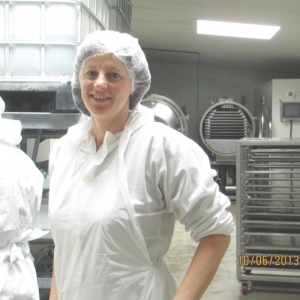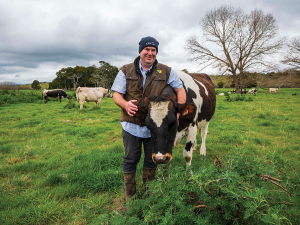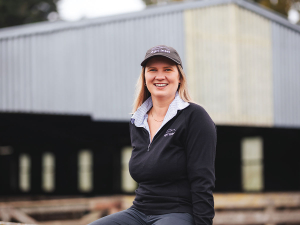“I didn’t think I would end up collecting placentas, let alone they would become the main product,” says Payne, founder and sole owner of Agri-lab Co Products, Waipukurau. The business has won the 2013 Fly Buys ‘Making it Rural’ Award, recognising manufacturing and creative businesses run by members of Rural Women NZ.
The business sources waste animal products including placentas, glands and membranes from farmers and freezing works, and, in some cases, freeze-drying them for health supplements and skincare products. Most are exported as frozen raw ingredients for further processing overseas.
But it’s the placenta side started in 2004 that has taken off, the business doubling each year for the last five years, Payne told Rural News.
Most of the growth has come from the US and Japan, and Canada and Malaysia also growing fast. “Indonesia is an emerging market; we haven’t exported there yet but we are getting a lot of inquiry from clients to supply there in the future. We have exported samples to Indonesia, just no commercial orders yet.” The placentas are exported to pharmaceutical companies and are mainly used in dietary supplements.
Placenta is the only product where demand exceeds supply and it is the only Agri-lab product which mainly comes from live animals. Our licence allows us to collect other products from live animals such as blood, serum, velvet etc
“We take all the placentas we can get from supplying farms. They must supply chemical free, drug free placentas fit for human consumption, so they don’t collect from sick animals or ones that have been treated with antibiotics. It’s exactly the same requirements as freezing works: if that animal could be sent off to be killed, then they can use the placenta from the animal.”
Placentas mainly come from live horse, pig and sheep but they also obtain some from slaughtered deer. Agri-lab also picks up placentas from some of the big, nearby dairy farms in Hawke’s Bay.
Payne says the return to farmers is about 10 times more than dags, and is better with economies of scale.
A veterinary nurse, qualifying in the UK as top of her year out of 8000 students, Payne first started doing consultancy work in use of animal waste products in 1999. When she started she worked out of rented space at the freezing works, but then built the factory and formed the company in 2002.
The market for animal products used in health supplements and skincare continues to grow, buoyed by celebrity use. Victoria Beckham, for example, has been reported to use sheep placenta products on her face. Agri-lab started with two clients and is now the leading supplier of animal placenta products in the world. In 2012 its turnover was $1.32m and it is now on track for an estimated turnover of $2m for 2013.
Fly Buys is the award sponsor and its business programme manager Trevor Jellie says Payne’s business was especially impressive as she has managed to become a global exporter from a rural location, and creatively turn waste into a highly desirable product.
She had also ‘nailed’ the difficult task of balancing business management with running a household: Payne is the solo mother of three boys.
“Angela’s business proves you can enjoy a country lifestyle and run a successful operation on a global scale; her customers are only an email away.”
Payne told Rural News that, as demand exceeds supply in placentas, she is keen for more farmer suppliers, provided they meet the criteria and it is economically feasible for Agri-lab to pick up the frozen placentas from their property.

















